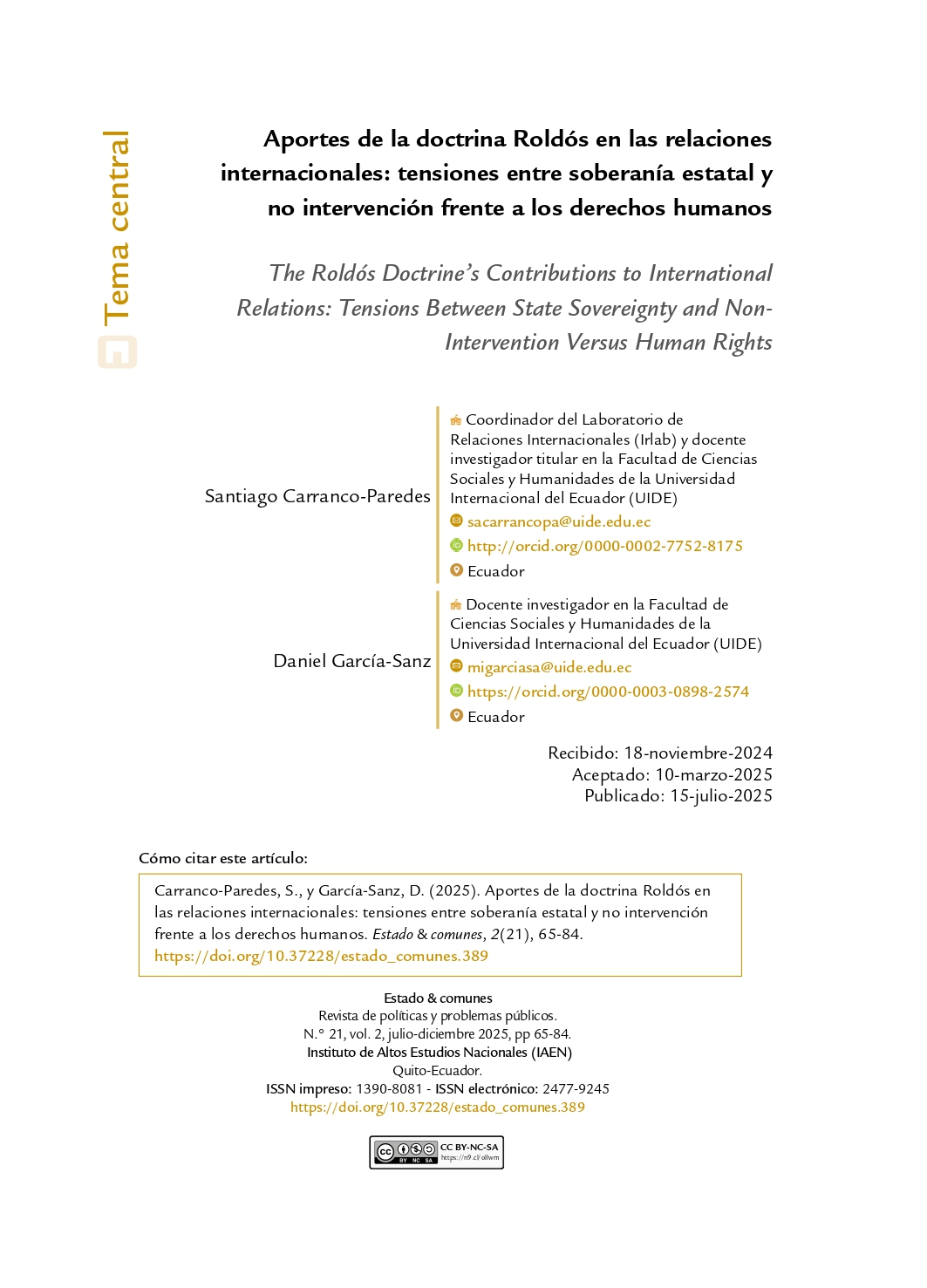The Roldós Doctrine’s Contributions to International Relations: Tensions Between State Sovereignty and Non-Intervention Versus Human Rights
Main Article Content
Abstract
This article addresses the normative tension between the principles of state sovereignty and non-intervention, on the one hand, and the defense of human rights, on the other, from a historical, international and regional perspective. Using the historical-critical method, three key periods of these tensions were analyzed: the Cold War, the military dictatorships of the 1970s and 1980s, as well as the post–Cold War era. The findings reveal that Latin America has contributed to the international debate on human rights and that the Roldós doctrine is a proposal for regional integration that places human rights defense as a universal principle. In conclusion, the Roldós doctrine represents a contribution to foreign policy, ignored by academic debates. Latin America is a scenario of theoretical contributions that, if considered, would challenge the Eurocentric narrative of international relations.
Downloads
Article Details
How to Cite
Issue
License
Copyright (c) 2025 Santiago Carranco-Paredes, Daniel García-Sanz
CC BY-NC-SA. This license allows sharing, copying, distributing, performing, and publicly communicating the work, as well as creating derivative works.
Author Biographies
Santiago Carranco-Paredes (Universidad Internacional del Ecuador)
Coordinator of the International Relations Laboratory (Irlab) and tenured research professor at the Faculty of Social Sciences and Humanities
Daniel García-Sanz (Universidad Internacional del Ecuador)
Research professor at the Faculty of Social Sciences and Humanities











